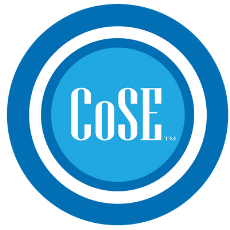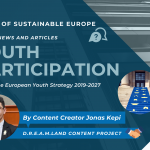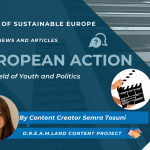Written by Dr. Lorenca Bejko
Reading time: 5 minutes
Europe has seen a boom in non-formal education as more people and institutions recognize its worth in today’s dynamic and unpredictable society. This new approach to education fosters individual and collective growth through a more adaptable, student-centered, and cooperative learning setting. This article will go into the many facets of informal education in Europe, discussing its rising importance and the ways in which it helps to cultivate skills, knowledge, and new ways of thinking.
When people learn outside of traditional institutions like schools and universities, they are engaging in non-formal education. Workshops, seminars, online courses, training programs, and even cultural exchange projects are all included. Individuals can continue their learning and development throughout their life through non-formal education, which is typically voluntary, self-directed, and interest-driven.
In Europe, Non-Formal Education Is Gaining Importance..
Skills Gap Closure: Many European businesses are having trouble filling open positions because they can’t locate qualified candidates with the necessary expertise. Because of its ability to respond quickly and flexibly to changes in the labor market, non-formal education plays a critical role in closing this gap.
In a world where technology is advancing at a breakneck pace and the work market is always evolving, it is crucial to encourage continual learning. Individuals can maintain their marketability in the job market by taking use of non-formal education options to expand their skill sets.
Promoting Social Inclusion: Non-Formal Education has a positive effect on underprivileged and underrepresented communities. Non-formal education has the potential to help people overcome obstacles to their social and economic success by providing them with easy access to learning opportunities.
The promotion of intercultural understanding, as well as tolerance, respect, and discussion among Europe’s various groups, is aided by non-formal education initiatives including foreign exchange programs and cultural workshops.
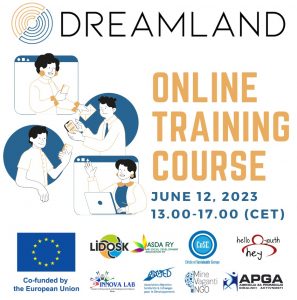
Online Training Course; Developing Routes of Europe’s future through non-formal learning with Active youth Members
Non-Formal Education Programs in Europe: Some Instances
The European Union’s European Voluntary Service (EVS) program provides opportunities for young people to engage in service abroad for a year. Volunteers help the community while also learning valuable skills for their personal and professional lives.
Erasmus+ is an EU-funded program that encourages and facilitates non-formal education activities across Europe. Youth participation, active citizenship, and cross-cultural awareness are only few of the goals of the program.
Centers for Adult Education: Adult education centers have been formed in many European nations to provide adults with non-formal learning possibilities such as language classes, workshops for career advancement, and cultural events.
However, there are a number of obstacles that must be overcome before non-formal education may fully realize its promise to improve people’s lives and the world at large. A major obstacle is that many non-formal learning experiences are not recognized or accredited, reducing their value in the eyes of potential employers and academic institutions. To solve this problem, effective methods must be created to acknowledge and validate students’ prior learning outside of a classroom setting.
Moreover, there is a demand for more financial and physical support for non-formal education. For this to happen, public and private sectors would need to work together to foster conditions that are conducive to informal learning.
can be an important factor in resolving problems like the continent’s lack of skilled workers, its high unemployment rate, and its desire for more cross-cultural understanding. However, this potential cannot be fully realized without the concerted effort of stakeholders across Europe to meet the obstacles and exploit the opportunities presented by non-formal education.
Policymakers, teachers, and businesses are increasingly realizing the importance of non-formal education in preparing individuals with the flexible set of skills necessary to thrive in today’s dynamic economy. Europe can pave the path to a more inclusive, innovative, and affluent future by supporting non-formal education projects and developing an environment that fosters and verifies these learning experiences.
Here, we’ll examine some concrete cases of non-traditional education programs in Europe, looking at how they’ve helped and what we can learn from their triumphs and failures.
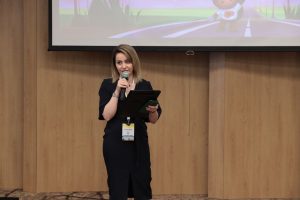
Lorenca Bejko – Project Coordinator Researcher ‘Non-formal education’
Codecademy is an online learning platform that provides access to in-demand programming courses. It is a model of a non-formal education program that has drawn a wide audience in Europe and beyond. Codecademy is successful because it provides learning opportunities that are adaptable, easily available, and relevant to the needs of today’s workforce. The problem, however, is making sure that the skills learned on such sites are valued and respected in the workplace.
Lesson: Codecademy’s achievements show that digital platforms can effectively provide informal education on a massive scale. To guarantee that the skills obtained are recognized and valued by employers, policymakers and educators should investigate methods to harness such platforms to provide more accessible and flexible learning opportunities.
Non-traditional residential educational institutions, folk high schools first appeared in Denmark before expanding throughout Scandinavia and the rest of Europe. They teach a wide range of disciplines, including the arts, crafts, languages, and social sciences. These educational institutions are committed to helping their students grow as individuals and as members of the school community. Folk high schools are effective because they provide students with a safe and welcoming place to learn that encourages personal development and community harmony.
Lesson: The success of folk high schools exemplifies the need for non-traditional schools to provide welcoming and safe spaces for all students. Such institutions can strengthen students’ agency and contribute to community building by emphasizing growth and self-improvement.
The European Youth Parliament (EYP) is a nonprofit organization that hosts debates and discussions on pressing political, social, and economic issues affecting young people across Europe. Activities in the EYP aim to promote active citizenship and intercultural understanding through the development of transferable skills like critical thinking, public speaking, and teamwork. The EYP is a model of a non-formal education program that effectively promotes civic participation and the development of marketable skills.
Lesson: The EYP’s success highlights the power of non-formal education to equip youth with employable skills and encourage them to participate as engaged citizens. Such programs have the potential to significantly influence the development of future leaders and the strengthening of European unity.
In conclusion, these cases show the wide variety of non-formal education efforts present in Europe, each of which makes a special contribution to the cultivation of skills, knowledge, and individual development. Europe can continue to promote a more inclusive, innovative, and affluent future by learning from these experiences and applying their lessons into new and existing non-formal education initiatives.
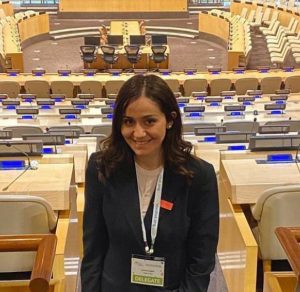 “Lorenca is a Doctor in Diplomacy, she got graduated from Center of Diplomatic and Strategic studies in Paris last year and currently is serving as a Diplomat,into the rank of First Secretary at the Albanian Embassy in Netherlands. In February 2021, she was a youth representative of France at the 25th Assembly in New York, United Nations headquarters. What distinguishes the work experience and engagement is her internship experiences at the Embassy of Lebanon in Paris and the Albanian Embassy in France.”
“Lorenca is a Doctor in Diplomacy, she got graduated from Center of Diplomatic and Strategic studies in Paris last year and currently is serving as a Diplomat,into the rank of First Secretary at the Albanian Embassy in Netherlands. In February 2021, she was a youth representative of France at the 25th Assembly in New York, United Nations headquarters. What distinguishes the work experience and engagement is her internship experiences at the Embassy of Lebanon in Paris and the Albanian Embassy in France.”
BIBLIOGRAPHY
European Youth Parliament / European Youth Parliament (eyp.org)
Validation of non-formal and informal learning | Europass
Non-formal learning / education – Youth Partnership (coe.int)
